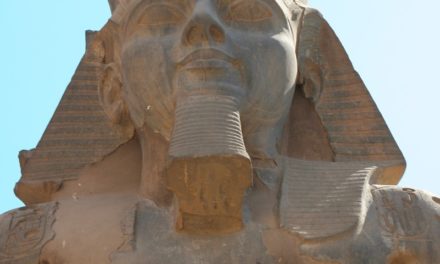Ishbibenob, one of the sons of the giant, had a bronze spear weighing three hundred shekels. And he determined to kill David with a new sword he carried. But Abishai, the son of Zeruiah, came to his aid and struck the Philistine, and killed him. 2Sa 21:16-17
![]()
One thing we highly value in our society are the experts. They have been there, tried that, and finally come out successful. If only we could take advantage of their experience and save ourselves a lot of grief! Experts command a good return on their advice because it has often saved big corporation millions of dollars. And if the big boys use them why can’t we little people also? Perhaps it could get us out of the hole we have been digging for years. Yes, experts have earned their place in society.
There are experts, however, that we are cautioned against. Their advice is not favorable to God’s people, though from the world’s perspective many profit by them. Ishbibenob was just that type of expert—the kind God considered dangerous to His kingdom. Let’s see why.
~~~~~~~~~~~~~~~~~~~~~~~~~
Of all the giants who threatened God’s people, Ishbibenob’s skills and weaponry are especially directed at leadership (…and he determined to kill David), but one all should beware! The Bible gives several clues to this giant’s identity — the first is his name.
His Name
Names in the Bible are often descriptive of the person. Ishbibenob means “his dwelling’ is in Nob”. What is this place called Nob?
- Nob means fruit, germination, a cause to flourish, or to utter words that bring cheer or increase. (This gives the idea of a lush, pleasant area, with lots of fruit, and where everyone is happy.)
- Nob also was known as a city of priests. (1 Sam. 22:19) The tabernacle was located in Nob for a period of time. David found food there when he was a fugitive fleeing from King Saul (1 Sam. 21:1-2).
So the name of this giant associates him with abundant living: food, happiness, safety, spirituality, or whatever causes one to flourish.
Besides the giant’s name we are given other clues to his identity: his weapons, the weight of his spear, and a metal.
The Weapons
The root word for “spear” in the Bible emphasizes destruction. No question about intention here, this giant is out to kill. And he is after leadership. A sling or bow and arrow are used for defense at a distance, but a spear is used for close combat. Unless a lethal aim is certain, a spear is not usually thrown. Once out of hand, a soldier would be defenseless. Ishbibenob was an enemy designed for close combat and very adept at drawing his opponent close to himself.
The “new sword” is also a weapon for hand-to-hand conflict. However, sword is a supplied word. It is not in the original. All we are told is that Ishbibenob had something new he planned to use in killing David. Scholars of Old Testament language and culture say this “new” something could mean:
- The giant may have had something tricky to fight with, something his foe didn’t suspect, or perhaps didn’t have experience fighting against.
- Since Ishbibenob was prepared for close combat, he might have displayed a badge or belt buckle showing his high rank and “superior” killing skill in order to intimidate his rival.
- Or it could refer to a weapon kept out of sight, like a dagger carried in a sheath between the shoulder blades
Whatever this “new” was, we can assume it would make the Expert more destructive. “New” has a fascination to us. We are drawn to it as moths to a light, It seems as if something is new it is better, stronger, more advanced, tastier, more nutritious or healthful, more reliable and useful, faster, or of better quality. We forget, however, that the sinful heart of man often introduces a weakness in the productions of his hands or mind. The “new” genetically improved strawberry may look better and be more resistant to certain diseases, thus making a better profit, but it has lost its flavor and nutritional value (the true purpose of food). “New” technology in computer-based merchandising has made purchasing items much easier and faster at the check-out line, but it has also made us much more vulnerable and dependent on the system. When Wal-Mart loses electricity, it shuts down the store. Why learn math when calculators can do our thinking for us? Why concern ourselves with proper rules of grammar or spelling when our word processors will “clean up” our letters? Why regularly schedule maintenance on our vehicles when their “idiot lights” will inform us of the proper time? Slowly, imperceptibly, we are sacrificing quality for speed, durability for lower cost, and nutrition for convenience. “New” in the hands of an enemy, can be very devastating!
Weight Of His Spear
Here is the next clue. His spear weighed “three hundred shekels”. In the KJV the word “shekel” is supplied. The unit of weight is not the focus of the description. But 300 is. Because this giant is an enemy of God’s people it is reasonable to assume the spearhead represents something also at variance with Christian principles. Whatever 300 is to the Christian, the enemy’s 300 is a counterfeit. Consider these stories in which 300 played an important part for God’s people.
- Enoch was translated without seeing death 300 years after the birth of his first son. Gen. 5:21-24
- Noah and his family were saved from the great flood in an ark 300 cubits in length. Gen. 6:15
- Joseph showed his brother Benjamin favor by a gift of 300 silver pieces, to test his brothers for jealousy. They mistook it as an omen of death. Gen. 45:22
- Gideon’s army of 32,000 was reduced to 300 before God could use them to help save His people from the Philistines. Judges 7:3-6
- Queen Esther saw God’s deliverance from Haman’s evil plot and that deliverance included the death of 300 men in the palace city. Esther 9:15
- Mary used spikenard (a relaxing, calming oil) to anoint Jesus just before his Gethsemane experience. It was valued at more than 300 pence. Mark 14:5
Is there a pattern here? 300 carries the idea of deliverance. Though each of these has something to do with death, their associations are all with a positive encounter with life. Because the weight of lshbibenob’s spear was given as 300 (shekels), it appears this instrument of destruction is to be associated with life and health, favor and deliverance.
This awesome giant has his own weaponry to fight the battles of life… and he gets results, wonderful results. Problems fall by the wayside. Successes pierce any difficulty. And it is obvious that a power greater than man is involved. But remember, this giant is an enemy, and every description of his person or weaponry is intended to expose his evils!
The Metal
Brass was the metal of choice for lshbibenob’s weapon. Since brass is not found in nature, man must put it together. Wherever brass is used in Scripture the connection is with something on earth or something involving mankind. These aren’t necessarily bad happenings or things, just human or earth-oriented.
A good weapon, if we know how to use it, can make us feel more in control and less fearful when threatened by man or beast. Since the giant’s spear was made of “brass”, we can assume it represents putting confidence in what man can do to protect himself. And because we are describing an enemy of God’s people, it would indicate a God-less, humanistic approach. “Man-made solutions” rather than God-made ones.
The deliverance, then, mentioned above would come as a result of human planning, human devising, human logic, human effort, but the results would appear parahuman (where human power is working alongside a higher power). Ishbibenob says, “You can do whatever you want to do. The power is within you. All you have to do is focus that power, and I have just the thing to do it! Come close and I will show you.” He thus lures us into his deceptive power like he did Eve at the Tree of Knowledge of Good and Evil.
PUTTING IT ALL TOGETHER
So there he is, a gigantic enemy, skilled, equipped, and determined to bring down leaders of God’s people. What makes him so treacherous? He lives in vales of luxury and prosperity. He appears victorious over every earthly challenge. And he always has something new and exciting to draw us to himself.
The weight of the spear head (300) and the metal it is made from (brass) exposes one of Satan’s most frightening giants, the EXPERT: prosperity, deliverance, success, favor. His real identity? SELF SUFFICIENCY. This giant raves, “Deliver yourself by the powers inherent in you. Gain success by my human methods. Look at me! Make yourself rich and famous like I have done. You can do it! Come close and I will show you how.”
Prosperity’s golden finger is used to exterminate God’s people. What persecution cannot silence, success and prosperity will, Satan says.
We have been conditioned from infancy to think of prosperity, deliverance, success, and favor as always positive. Only a fool would turn his back on these! But, consider the counsel of God.
An Ammonite or Moabite shall not enter into the congregation of Jehovah…. You shall not seek their peace nor their prosperity all your days forever. Deut. 23:3,6
I spoke to you in your prosperity; but you said, I will not hear. This has been your way from your youth, for you have not obeyed My voice. Jer 22:21
And read David’s lament in Psalm 73 (GW Version).
God is truly good to Israel, to those whose lives are pure. But my feet had almost stumbled. They had almost slipped because I was envious of arrogant people when I saw the prosperity that wicked people enjoy.
They suffer no pain. Their bodies are healthy. They have no drudgery in their lives like ordinary people. They are not plagued with problems like others. That is why they wear arrogance like a necklace and acts of violence like clothing. Their eyes peer out from their fat faces, and their imaginations run wild. They ridicule, speak maliciously. They speak arrogantly about oppression. They verbally attack heaven, and they order people around on earth. That is why God’s people turn to wickedness and swallow their words.
Then wicked people ask, “What does God know?” “Does the Most High know anything?” Look how wicked they are! They never have a worry. They grow more and more wealthy. I’ve received no reward for keeping my life pure and washing my hands of any blame. I’m plagued with problems all day long, and every morning my punishment begins again. If I had said, “I will continue to talk like that,” I would have betrayed God’s people. But when I tried to understand this, it was too difficult for me.
So David’s envying of the prosperous almost caused him to lose his hold on God. It almost destroyed the king of Israel.
Pride often follows closely on the heels of prosperity. It definitely had its effect on the king of Babylon. Remember Nebuchadnezzar’s boast before he lost his sanity? “Is not this great Babylon, that I have built?” Daniel 4:30
IS PROSPERITY EVIL?
Let’s not confuse all prosperity with evil. It is God’s purpose to prosper His people, to shower them with deliverance that gives abundant life, favors and health.
And his master saw that Jehovah was with him, and that Jehovah made all he did to prosper in his hand. Gen. 39:3
The God of creation desires to prosper his people. But there is a stipulation. And once that stipulation is an integral part of our thinking and belief system there is no limit to what God can give us.
What does God need in order to prosperous us? Let’s look at the one who killed Ishbibenob.
God’s Deliverer
Abishai , one of David’s great warriors knew how to wield a spear and had his own 300. [A note of interest here. Each warrior who does battle with the different giants is designed by God to have similar characteristics as the enemy he fights–only with a divine twist.]
Joab’s brother Abishai, Zeruiah’s son, was the leader of the thirty. He used his spear to kill 300 men. He was as famous as the three and was honored more than they were. So he became their captain, but he didn’t become a member of the three. 2Sa 23:18-19
When David was a fugitive, he and Abishai came across the sleeping Saul and his guards. Abishai wanted to thrust his spear through the renegade king, but David’s whisper forbade him. Though mighty, Abishai was able to take orders.
These commendable attributes, however, were not the focus of his success against the giant that day. No weapons or strategies are referred to in describing the one who succeeded in overcoming this powerful foe. All that is mentioned as a qualifier to do battle against Ishbibenob was the deliverer’s name and the name of his mother!
- Abishai: the father of a gift, generous
- Zeruiah: wounded or cracked by pressure or by distillation, as in making balm
The picture comes through. Zeruiah, one of David’s sisters[1], had gone through very trying circumstances, but came out on top. When the pressure bore down on her, she did not crumble. By the grace of God she became as a fragrant ointment or aromatic oil for healing or anointing. Her example apparently impressed her son, Abishai, for his name characterizes empathy toward those in need. Abishai knew what it meant to suffer, apparently by observing his mother, and was eager to help others in need.
It is this very combination, generosity rising out of hardship, or generosity resulting from an understanding of the pain of others that overcomes the evils of prosperity. To a heart longing to help others, prosperity and wealth become a means to bless others. To a heart focused on self, riches and honor take on silent, destructive forces.
David also suffered much, but he had a difficult time with prosperity. Suffering alone is not sufficient to overcome the specter of prosperity; it must be accompanied with generosity, using gifts entrusted to us to bless the lives of those less fortunate. Notice the counsel Daniel gave the mighty king of Babylon, the head of gold, the one who represented prosperity at its highest:
Therefore, 0 king, let my advice be pleasing to you, and break off your sins by righteousness, and your iniquities by showing mercy to the poor, whether there will be duration to your prosperity. Dan. 4:27
Note also the implications in Jesus’ parable of the rich landowner:
He told the people, “Be careful to guard yourselves from every kind of greed. Life is not about having a lot of material possessions.”
Then he used this illustration.
“A rich man had land that produced good crops. He thought, ‘What should I do? I don’t have enough room to store my crops.’ He said, ‘I know what I’ll do. I’ll tear down my barns and build bigger ones so that I can store all my grain and goods in them. Then I’ll say to myself, “You’ve stored up a lot of good things for years to come. Take life easy, eat, drink, and enjoy yourself.”’
“But God said to him, ‘You fool! I will demand your life from you tonight! Now who will get what you’ve accumulated?’ That’s how it is when a person has material riches but is not rich in his relationship with God.” Luke 12:15-21 GWV
Jesus did not denounce the man for his wealth, but rather what he did with it. Wealth, fame, influence, talent cannot harm the soul that ever remembers he is a steward of God’s blessings —to do good to others— and not an owner of them. God must be able to pour the riches of heaven and earth through us, not just in us, to be used for and on ourselves. It is only when we become channels, not holding tanks, that we are out of danger.
Babylon, the golden kingdom, still has a strong influence on nations, leaders, and the church. Her experts on prosperity are all over the world and a great threat to saints today, in that their advice feeds self-sufficiency and self-absorption. Wherever we turn, whether to education, ministry, business, or healthful living, the world lures us to itself, promising success and security, and appearing very much an example of its claims. Yet God’s word sounds a warning. With a heart devoted to help and bless those in need, and our confidence in God’s loving, providential care, the Expert’s’s power is broken!
And God, the El Shaddai, the God of “more than enough”, can abundantly prosper His people without it harming them. This is His first choice. To continue, click on SAPH.
[1]
1 Chronicles 2:16






